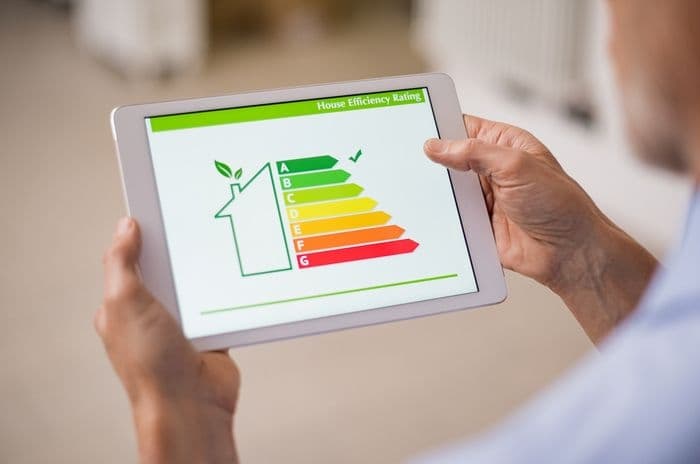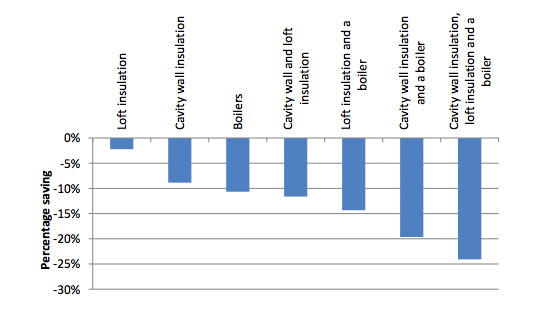Home > Energy > News > Loft insulation cuts bills by just £15.50 a year, Goodall claims
Loft insulation cuts bills by just £15.50 a year, Goodall claims
ENERGY efficiency measures like new boilers and loft insulation could have far less impact on household bills than previously thought, a leading climate change expert has argued.

Chris Goodall, a writer on green issues and former Green Party parliamentary candidate, analysed Government data on efficiency measures and found that the annual value of the savings was far lower than the Energy Saving Trust (EST) estimates for the same improvements.
Research published by the Government in November found that loft insulation reduced energy use by 1.7% on average, for example.
Goodall estimates that, based on the current lowest kWh price from the big six energy suppliers, the average household is saving just £15.50 a year by installing loft insulation.
The EST expect their energy savings estimates, which are used by all the major energy suppliers, to fall for some measures at the beginning of next month.
A spokesperson told us that the Trust "do not agree with Chris Goodall's limited interrogation of the data", however.
"Our energy savings are based on the most robust methodology and datasets available, and these figures are renewed annually to include the latest fuel prices and statistical evidence. The information we use to calculate our figures come from a cross-section of sources," the spokesperson said.
Whatever the extent of the issue, it's clear that efforts to make homes more energy efficient are less effective than previously thought.
Bad news for Green Deals
That's bad news for anyone hoping to cut fuel bills by making home improvements, particularly if they were hoping to pay for them through the Government's Green Deal, a loan scheme for efficiency improvements.
Green Deal loans are interest free but they're agreed based on the savings a household will make on bills as a result of a big investment like a new boiler.
Households can only access the deal if they can show that installing, say, an A rated boiler will make a significant difference to household efficiency so this could mean less people will be eligible.
For those that can get a Green Deal, savings estimates matter even more.
Repayments are based on estimated savings on bills: the idea is that households will pay out the same amount, in bills and loan repayments, as they were previously spending just on bills, until the loan is repaid in full.
If savings are small loans will take a long time to repay and if the quality of the estimates is in doubt consumers may be disinclined to take out a loan in the first place.
Efficiency effectiveness
These knock on effects are only a serious problem, however, if the estimates for energy savings are seriously off.
Unfortunately, that is exactly what Goodall is suggesting on his Carbon Commentary blog (see full post here).
As is clear from the table below, actual energy savings appear to be half of the Energy Saving Trust estimates.
| Annual savings: Goodall estimate assuming 3.874p per kWh | Annual savings: EST estimate | |
|---|---|---|
| New boiler | £69.73 | £105 to £310 depending on the boilers |
| Cavity wall insulation | £54.24 | up to £140 |
| Loft insulation | £15.50 | Loft with no insulation: up to £180 Insulation improvements: £25 |
The Department of Energy report that Goodall is using (available here [pdf]) looked at properties with varied types of installation already installed and, perhaps, not the top performing efficiency measure installed as an improvement.
The study tracked the real energy use of two sets of homes over a whole year: one group that installed energy efficiency measures and a control group of similar homes, with similar energy use, that didn't install improvements.
So, for example, in the case of loft insulation, the study is looking at households with and without some installation already installed, "households with very little or no existing insulation can expect to save more than the typical savings presented [in the findings]," the authors say.
Moreover, an interesting part of the study was the huge difference that having multiple energy efficiency measures made to household savings.

Source: National Energy Efficiency Data Framework, published 21/11/13
Again, this is something Goodall doesn't really take into account.
Efficiency savings are often presented as best case scenarios: that £310 saving, for example, is for replacing a G rated (less than 70% efficient) boiler with a new A rated condensing boiler and full set of heating controls so it's not unreasonable that the EST estimates would take the presence of other efficiency measures into account when calculating their savings.
This, and many other factors, make the EST estimates just that, estimates, albeit important ones.
The real test will come when, through the Green Deal, personalised efficiency estimates, which can take all this information into account, become more usual. Will households feel the savings are big enough for them to make changes to their homes?
Get insider tips and the latest offers in our newsletter

We are independent of all of the products and services we compare.

We order our comparison tables by price or feature and never by referral revenue.

We donate at least 5% of our profits to charity, and we aim to be climate positive.
Latest News

2 January 2024
Energy prices increase by 5%
23 November 2023
Energy price cap to rise 5% in January 2024
24 October 2023
Energy companies must do more to support customers

